In my book Watling Street, I talked about words for which there are no direct equivalent in the English language. One example of this is the German word mahnmal, which is their word for a monument to national shame. The Memorial to the Murdered Jews of Europe in Berlin, for example, is known in Germany as the Holocaust-Mahnmal. Not having a word for something like this does have an effect. As I wrote in Watling Street:
“Lacking this concept in their mental operating systems, English-speaking cultures have a notable problem discussing aspects of their own history, such as the treatment of aboriginal cultures in North America and Australia or the worst excesses of the British Empire and the Atlantic slave trade. English-speakers can get quite angry when these subjects are raised, which contrasts with the Germanic willingness to discuss the two world wars.”
We may not have the word mahnmal, but could we build a British mahnmal anyway? Such a memorial would be a healthy thing, it seems to me. As Jung argued, denying darkness does not make it go away – it makes it more powerful. It is only through bringing darkness into the light that we can defeat it. Painful parts of British history – from the response to the Irish potato famine to the Mau Mau rebellion – have to be faced and remembered. They cannot be denied for ever.
Building a mahnmal for the crimes of the British Empire, however, would turn certain British subcultures apoplectic. Such a monument, I suspect would cause more controversy than the oft-vandalised statue of Margaret Thatcher in Grantham. Large parts of the establishment really do not want the historic sources of their wealth and power explored. Whisper it, but their ancestors did not become rich by taking extra shifts at the weekend.
In 2020, the National Trust published its Interim Report on Colonialism and Historic Slavery, in which it noted that a third of its properties had historical links to colonialism and slavery. Powerful people were not happy about this part of our history being brought to light. Shortly afterwards a campaigning group appeared, opposed to what they called ‘wokeness’ in the National Trust.
Their attempts to change the organisation failed miserably, but you might not have got that impression from the extensive and favourable coverage they enjoyed in the right-wing press. Newspapers portrayed them as a genuine grassroots movement, rather than more shadily funded Tufton Street-linked bullshit. There are always plenty of public school/Oxbridge historians who are quite happy to write articles in the Daily Mail dismissing the ‘imagined sins of the British Empire’. All this is your miserable bog-standard British establishment playbook, of course, but it gives you some idea how the concept of a mahnmal would be received.
We may be unlikely to build a national mahnmal in the current political climate – but what if we had our own personal ones, monuments that reactionary powers could never discover or protest? What if there was a network of personal mahnmals up and down the country which nobody actually knew about, save for the people who mentally designated them?
When you’re out and about in your local area, you might come across something which strikes you as being oddly suitable to act as your own personal mahnmal. In my local park, for example, there is this strange thing:
Once a statue to the Olympic athlete Steve Ovett stood there, but in 2007 it was cut off at the foot and stolen. That lone foot now causes me to imagine a missing monument. With no offence to Steve Ovett intended, to my eyes this is a perfect candidate to be declared a mahnmal. In my mind, that’s what it is.
If hundreds of people across the land mentally decided that local oddities are mahnmals - would that make any difference to the psyche of the country? Rationally, of course, the answer is no. This is clearly magical thinking. Of course, the British establishment also runs on magical thinking, and that has worked out quite well for it. On a personal level, however, it will have an impact. Recognising a local monument to our darker history will help prepare you for facing up to difficult things. The greatest darkness, after all, is denial.
I recommend that you try this – if a candidate for your own local mahnmal presents itself, then declare to yourself that’s what it is. It could be anything - but you will know it when you see it.
UPCOMING
I’m beyond delighted to report that Love And Let Die will be published in America and Canada next week, on February 7th. Here it is on the left, next to a UK edition on the right. Can you spot the one change made to the cover for the North American audience?
That’s it - the word ‘James’ has been added to the subtitle. Beyond that, though, it’s the same as its UK cousin. You’ll find it at Amazon and all good bookshops next week - hope it’s worth the wait!
For those of you in Kent, I’ll be appearing at Waterstones in Canterbury on Friday 24th February to discuss that book with the legend that is CJ Stone. Full details are here. Then the following day, Saturday 25th, I’ll be at Faversham Literary Festival talking about it with Andy Miller from the award-winning Backlisted podcast. Hope to see you at one or, ideally, both of those!
Yeah, I should probably have warned you before those images appeared, forgive me. I plead excitement. I’m going to have a conversation with one of my favourite film directors, Ben Wheatley, after a screening of his pandemic folk horror In The Earth at William Blake’s Lambeth. That’s quite something, isn’t it? It’s a film that really deserves to be seen on a big screen, not least because of Clint Mansell’s soundtrack. This is on February 22nd - details and tickets are here.
If you’d rather have something a bit more comforting, then I think you’ll enjoy the Comfort Blanket podcast I did with Joel Morris about Classic Doctor Who. The responses to this have been lovely, have a listen.

On the subject of podcasts, occult comedian Andrew O’Neill has just launched their own and it is a dark, creepy, magnificent thing. It’s called The Inadvisable Trapdoor. If you’re one of those people who would definitely open an inadvisable trapdoor, should you come across one, then it’s absolutely for you. Find it here or wherever you get your podcasts.
And finally - Salena Godden’s poetry collection Pessimism Is For Lightweights is about to be reissued in an expanded hardback form, with more poems, a new foreword by me, and even an Old English translation of the title poem by Emily Cotman. You can - and must - snag your copy here.

Hmm, re-issuing yellow books in hardback in an expanded form… there’s an idea.
Until next time!
jhx






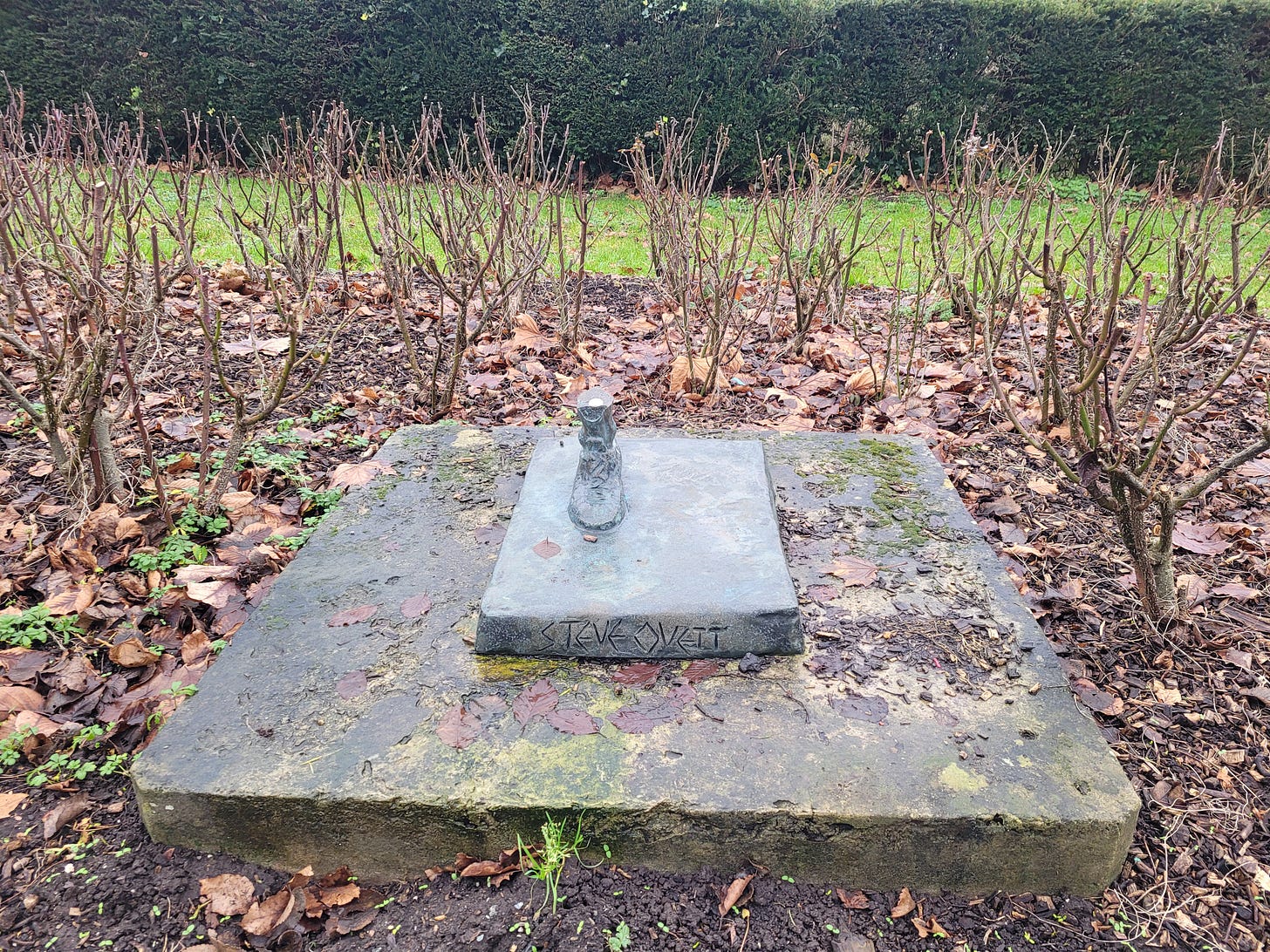
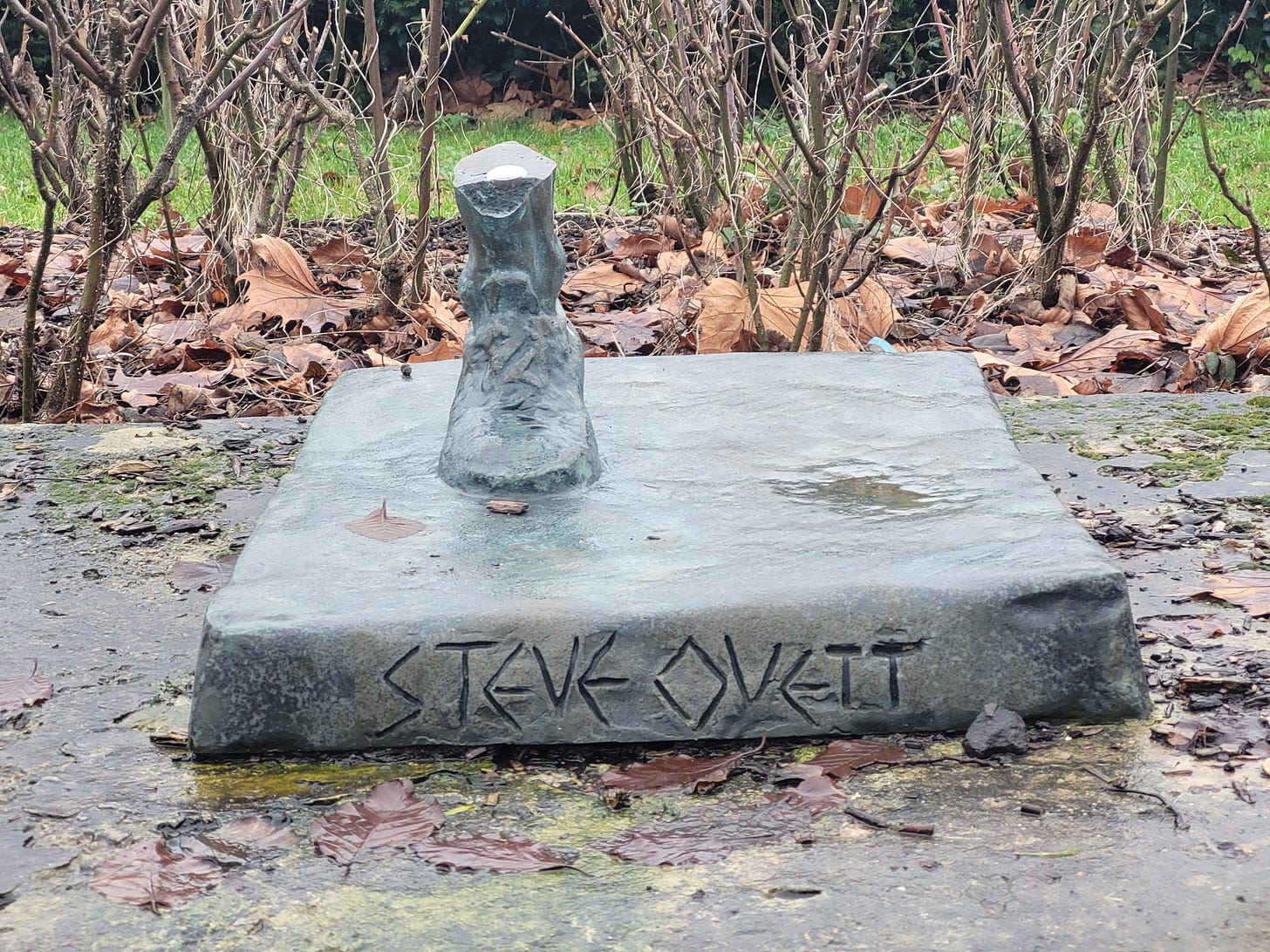
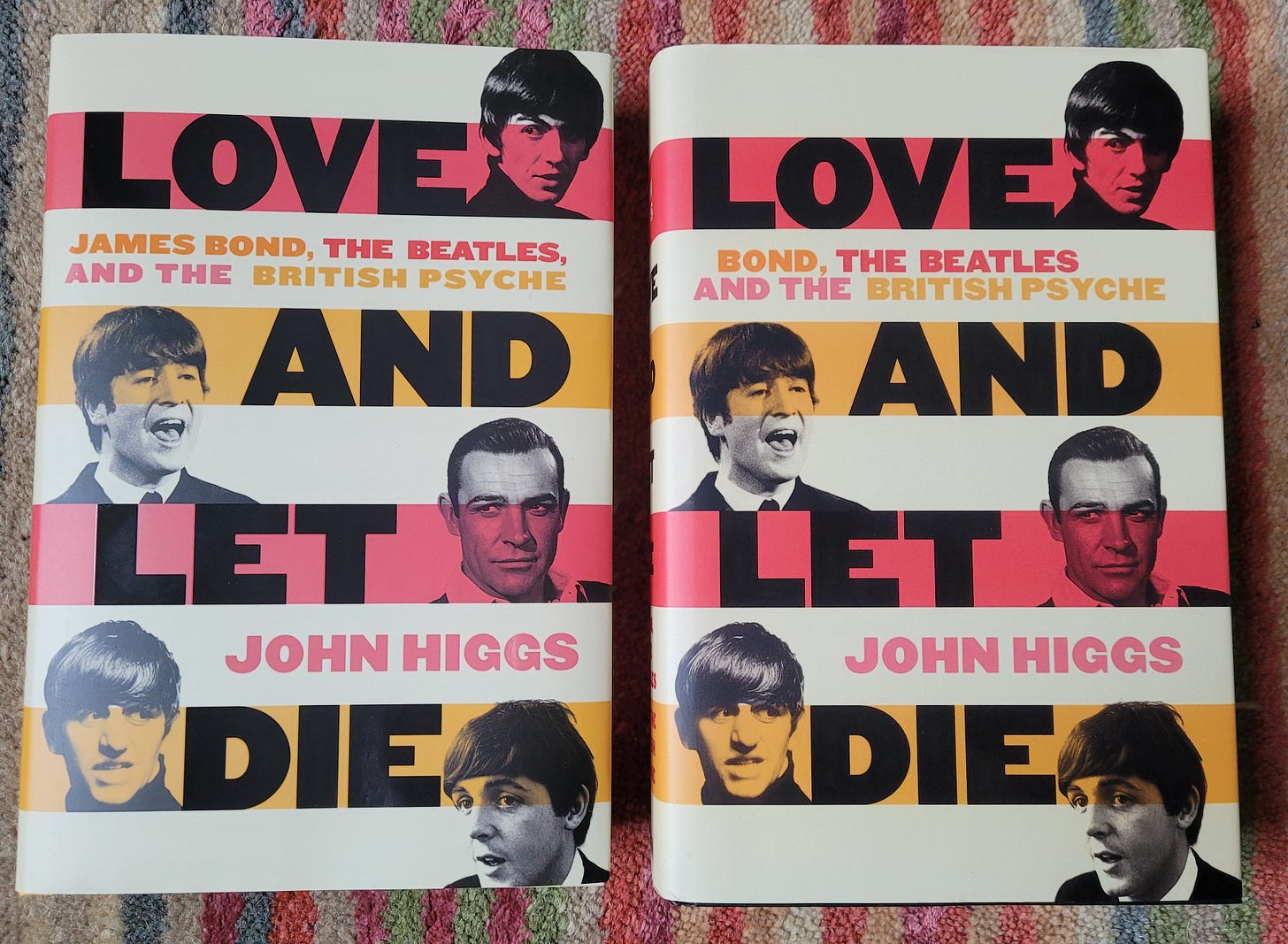
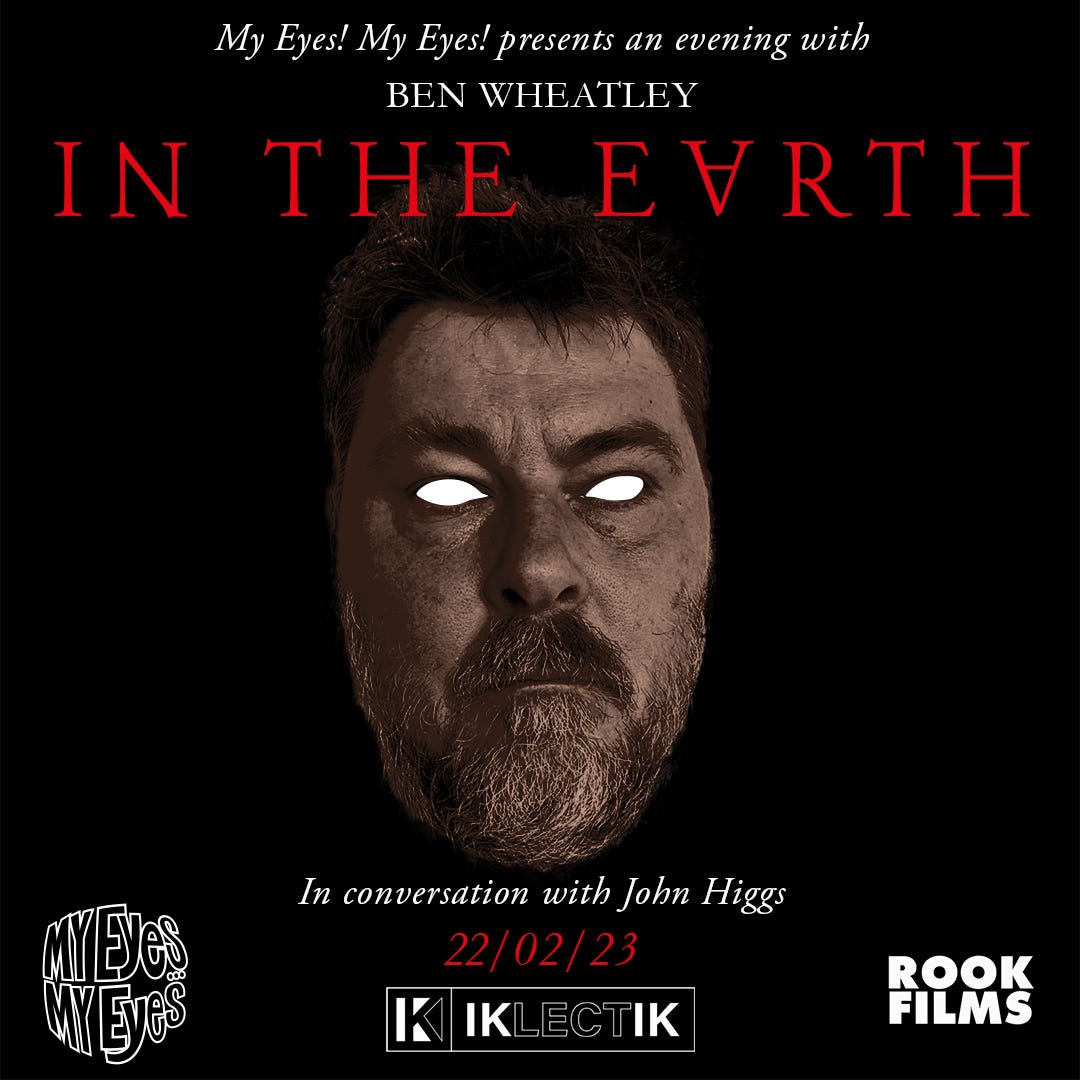
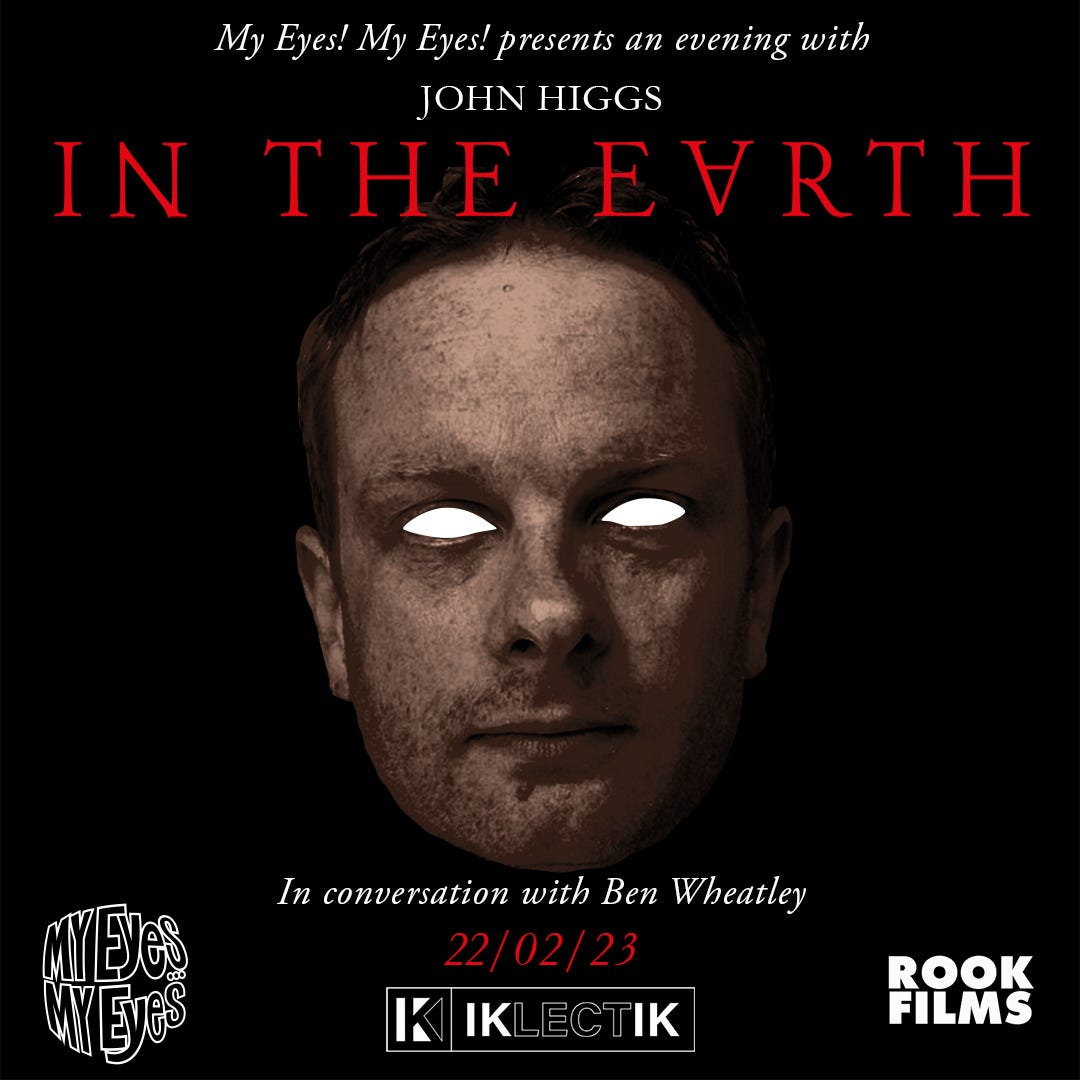

Love it. That’s taken care of today’s reading.